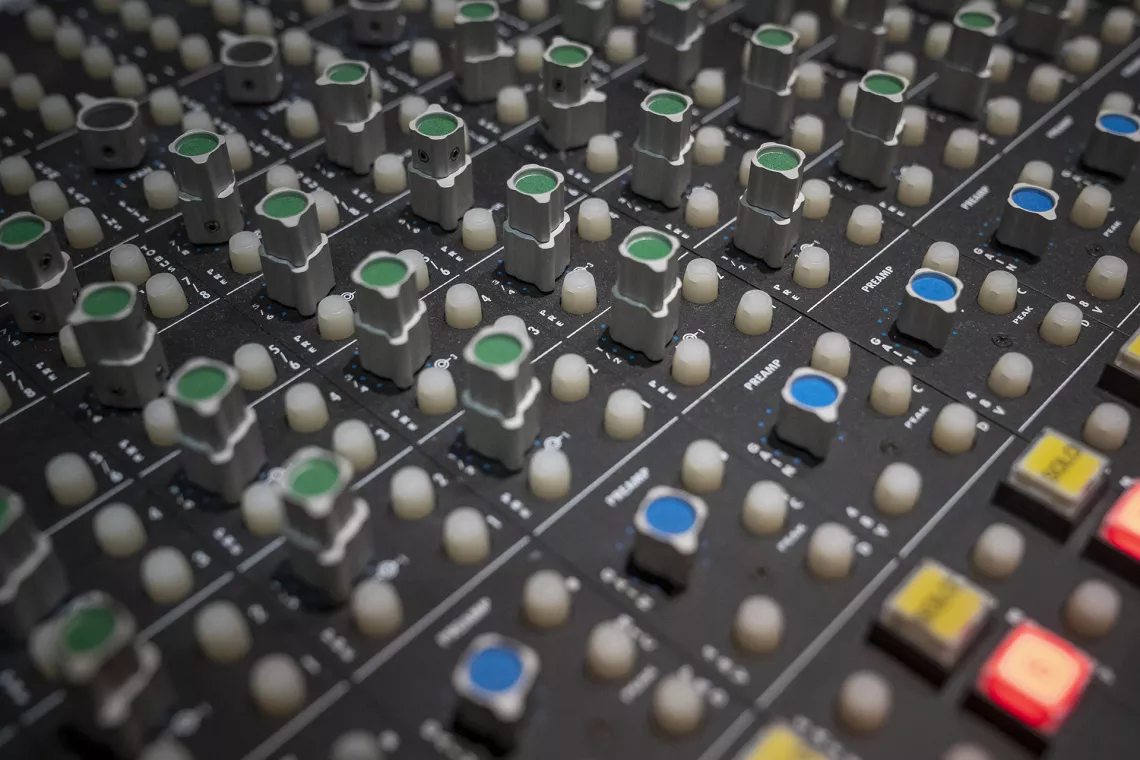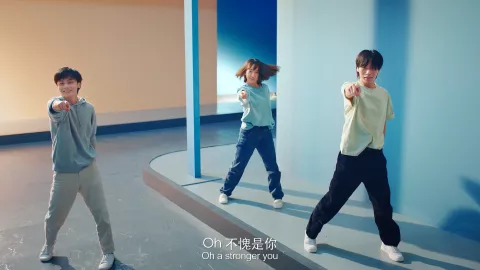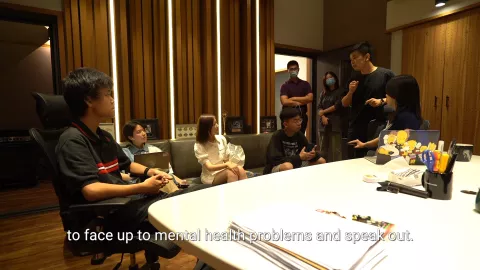Harnessing the uplifting power of music
Young people co-create a song to support their peers maintain mental health
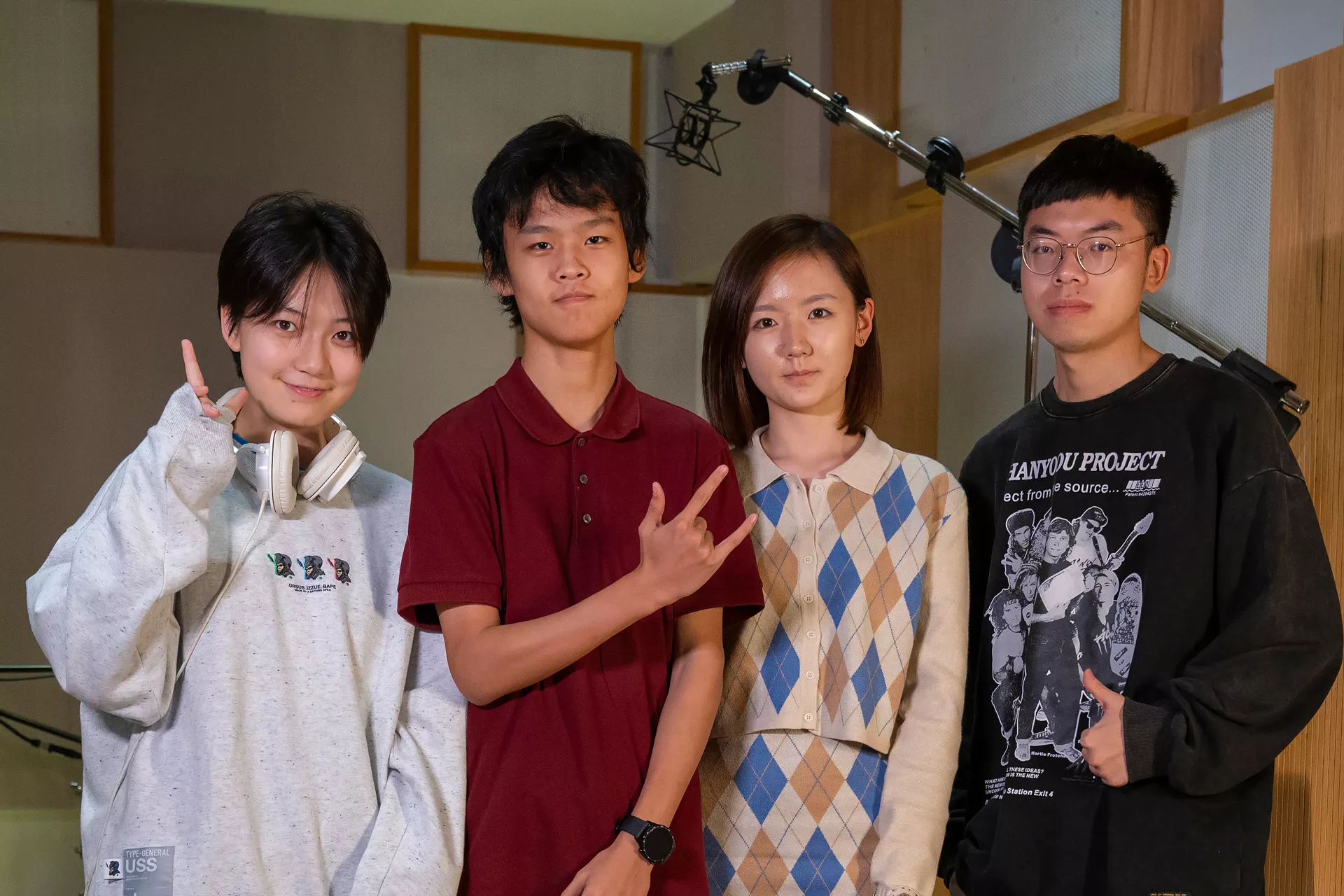
- Available in:
- 中文
- English
What would you do to boost your mental health if you felt anxious, worried or depressed? For many people, music is often high on the list, because the right melody and lyrics can soothe and heal a worrying mind.
A group of young people have taken it to another level. Supported by UNICEF, they rewrote the lyrics of the 80s hit song Brother Louie by German band Modern Talking, to help tackle the stigma around mental health and support other young people experiencing these challenges.
(From left to right: Perry Kan, Li Simo, Yu Xinwei, and Wang Zelong)
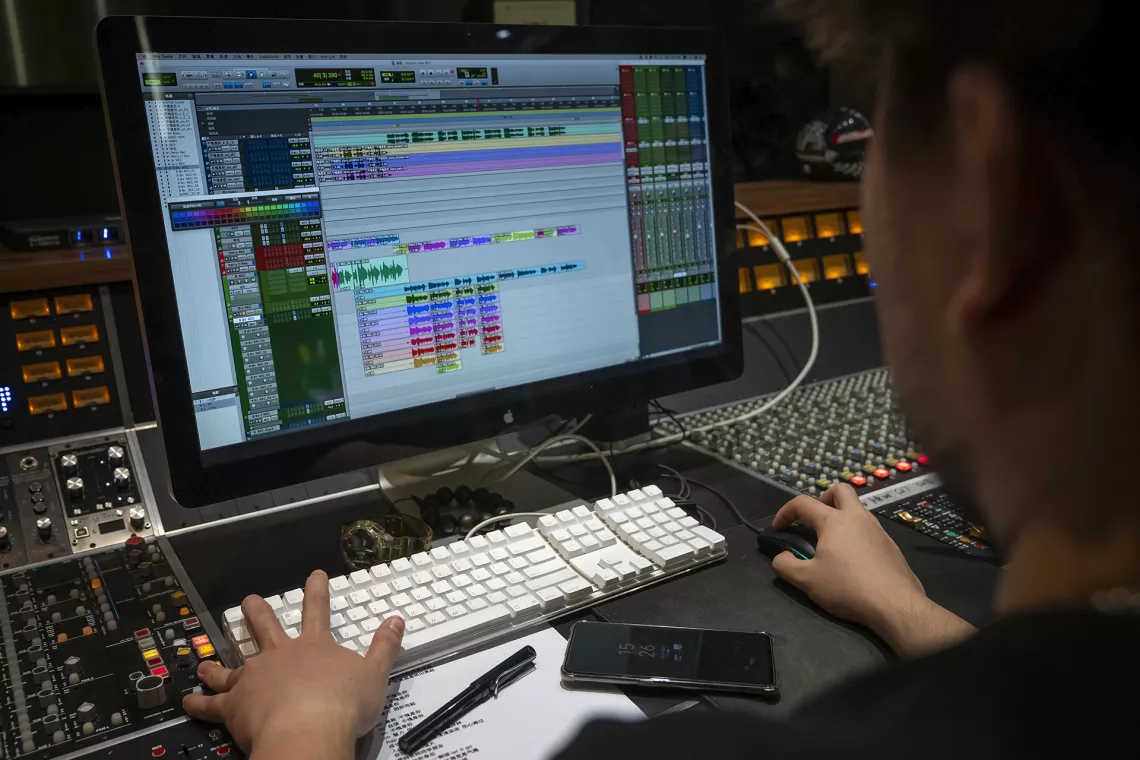
The song titled ‘A Stronger You’ is part of UNICEF China’s #StrongerMindStrongerYou campaign, which aims to start conversations among adolescents about mental health and the stigma around it.
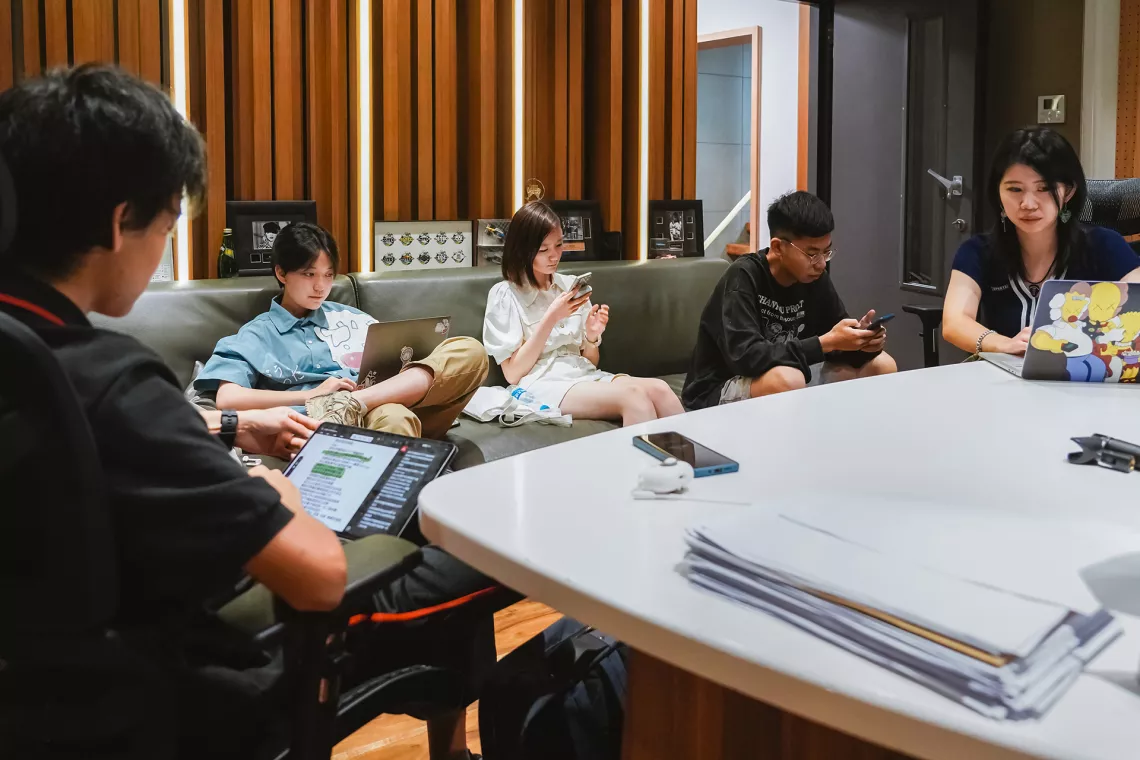
Facilitated by Xiaomozi (first from the right), a songwriter, the four girls and boys aged 16-20 shared their experiences around mental health and channeled them into music. They also recorded it with singer Sienna Wu.
The co-creation signifies UNICEF’s call to listen to young people, who are increasingly raising their voices and demanding action around mental health.
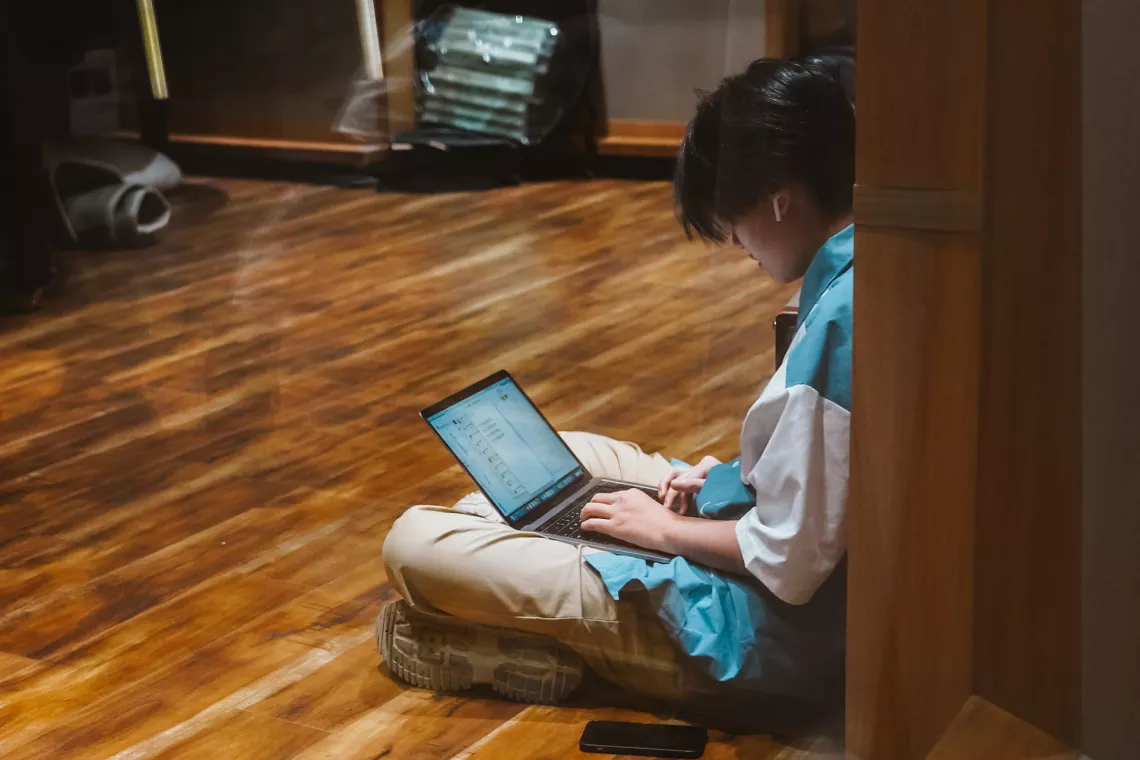
“I used to think that there was magic that could make all my troubles go away. But as I grow up, I realise the world doesn’t work that way, and I feel small”
begins the song, with 17-year-old Perry Kan opening up about one of the struggles she and her peers have experienced.
“When I was a child, I thought I was the centre of the world, and everything worked around me. As I grew up, I gradually realised there is a real world out there and I am merely a trivial part of it. I became confused about how to play my part, so I wanted to search for answers,” Kan explains.
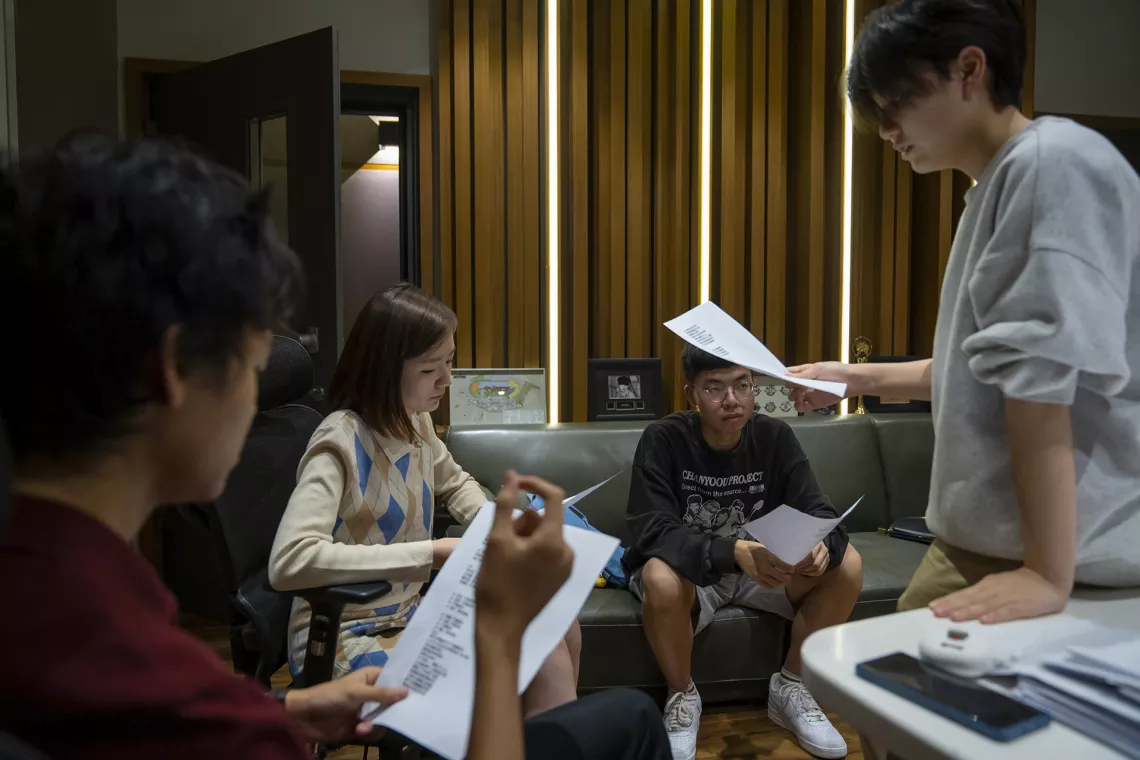
“Many people shun topics around mental health,” she says, noting that some parents would just tell their children they are ‘too fragile’ or that they are ‘faking the pain’ if they express their emotional vulnerabilities, because the parents believe they didn’t need mental health support during their upbringing and they turned out okay.
“Actually we need to express our feelings and let go of stress, so I wrote these lines to tell everyone this is a shared experience,” says Kan. “I am about to apply for college, and I want to study psychology, because I want to help my friends who are experiencing mental health difficulties. I also want to help more people who have similar problems through this song, to help them express themselves.”
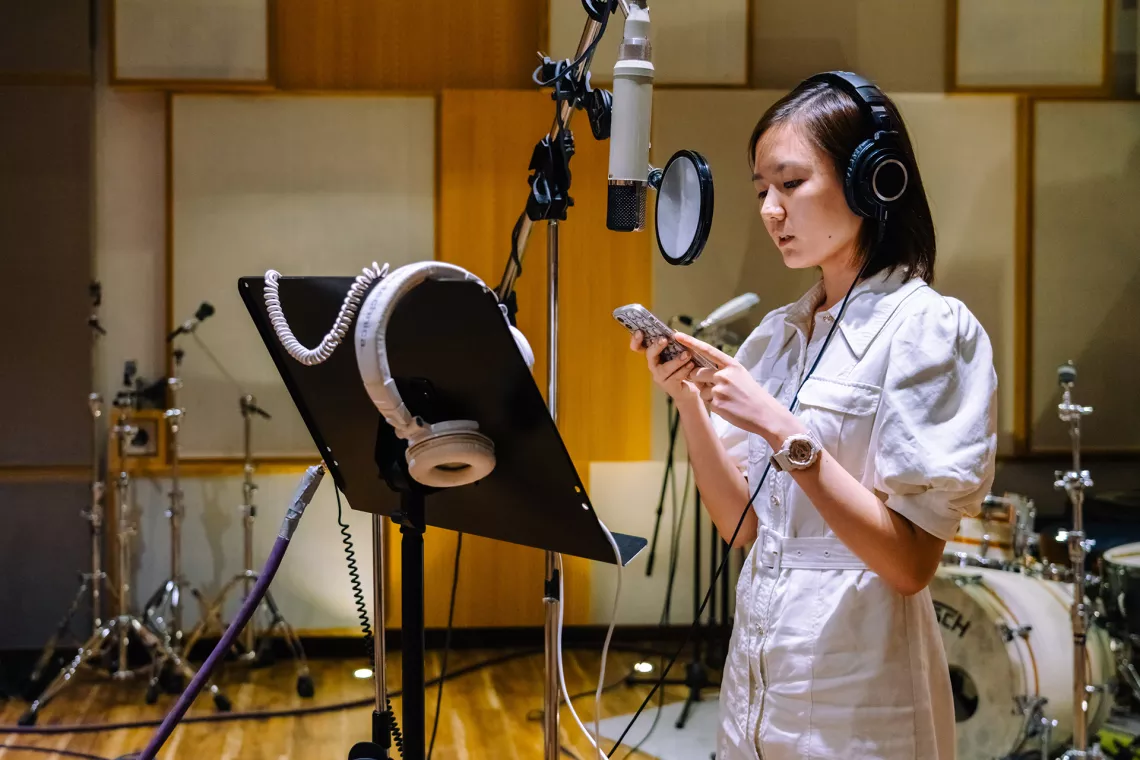
Yu Xinwei, 18, comes from Zibo, Shandong Province. In high school, she joined an on-campus advocacy activity around adolescent mental health jointly supported by the National Health Commission and UNICEF.
“When I put on a perfect face, my heart is trapped in shackles,” writes Yu, now a freshman at Beijing Normal University.
“When I was growing up, everyone – including me – expected me to excel in every aspect of life or to show my best side to others. When I remember it, it seems like putting on a mask of perfection. Though from the outside it may look pretty, when I take it off, what’s my true emotion? Am I really happy?”
Looking back, the girl says she held back a lot of her emotions, but through taking some of the pressure off herself and communicating with her parents and friends, she found her true self.
“Taking off the mask, I feel more at ease and happier. It turns out letting go of the pressure helped unleash my potential.”

Through the skills learned from the mental health programme, Yu not only kept her emotions in check, but also supported her peers.
In 2020, schools were closed for months due to the COVID-19 outbreak. The lockdown kept students out of class and away from their friends, creating serious concerns about their mental health. Yu found that some of her classmates showed signs of distress, so she searched for tips to deal with anxiety and shared them with her class. She also set up a support group so that they can help each other.
One of her favourite parts in the song is the chorus “After the storm comes the dawn.” “The storm is a metaphor for an internal struggle. It may be caused by external pressure or a setback you have encountered. It can seem unbearable, but I’d rather see it as a prelude to the dawn, which symbolizes hope,” she explains.
“If you are in a storm, don’t be scared, because the dawn is ahead.”
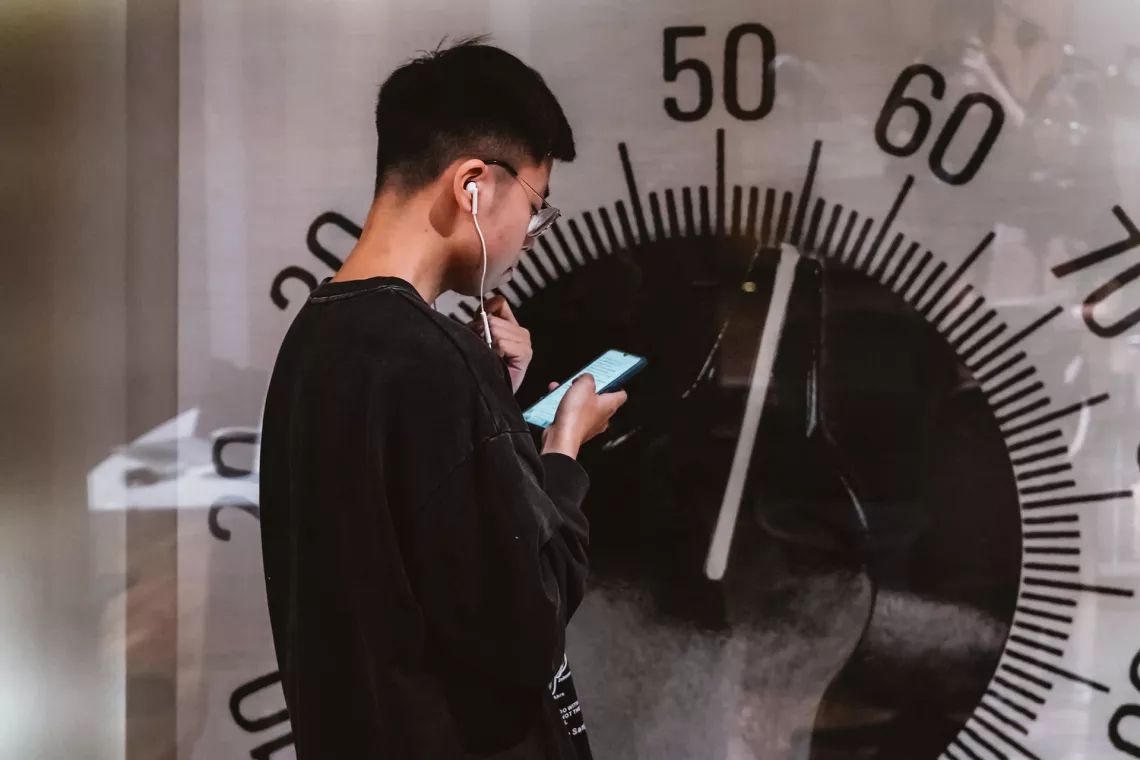
Wang Zelong, 20, from Peking University wrote and performed the rap part of the song.
“Rapping is a music genre that is down to earth. With simple tools, I can put my words to a beat. Creating music is so cool. On the one hand, it helps me cope with my own emotions and express them, and on the other, it can communicate my thoughts and emotions to those who have similar experiences or encounter difficulties, and help empower them,” says the rapper.
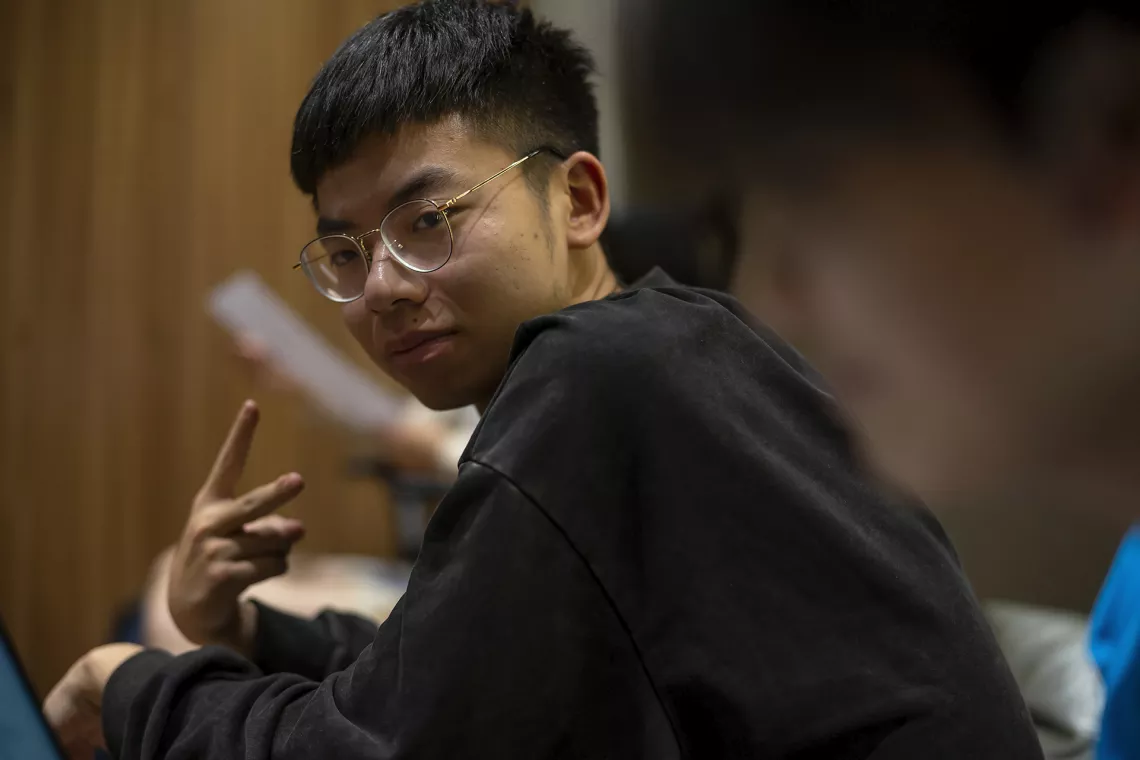
The rapper put his coping measures into the lyrics.
You are stronger than you think.
Especially when your parents, teachers, friends have your back.
Troubles will be ‘knocked out’, and be let go.
All the stress, let’s try leaving it in the diary.
Read it another day, and some of those worries may seem unnecessary.
Take a walk and chat with a buddy.
Turns out being happy could be this easy!
“More or less, everyone has some mental health difficulties. Over time, we will find they are part of growing up that no one can skip,” Wang says. “It is normal to have various emotions. We need to face up to them and acknowledge them, and seek help when needed. There is no need to feel ashamed. I think it’s critical that we change our mindset.”
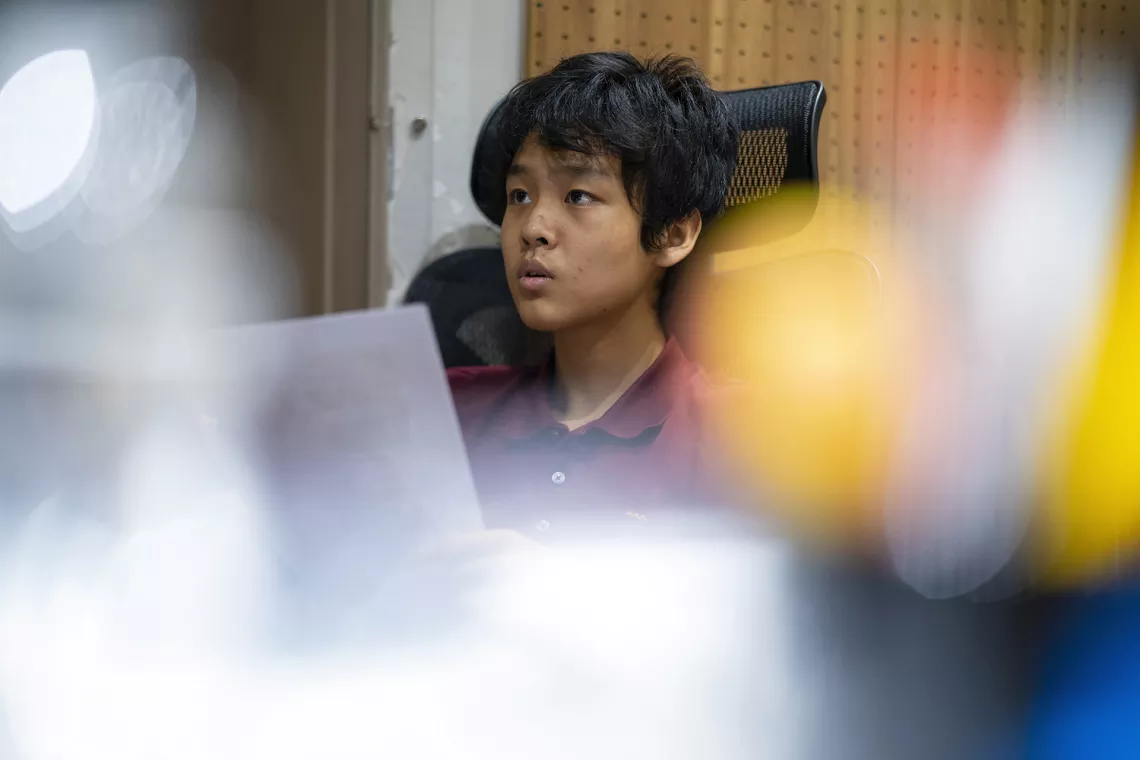
The youngest in the group, 16-year-old Li Simo, attends 10th grade. He calls on his peers to pay attention to mental health and open up about how they feel.
“While writing the lyrics, our goal was to give young people the courage to face up to mental health problems and speak out. In the face of various mental health difficulties, we shouldn’t be scared, or shun or deny them.”
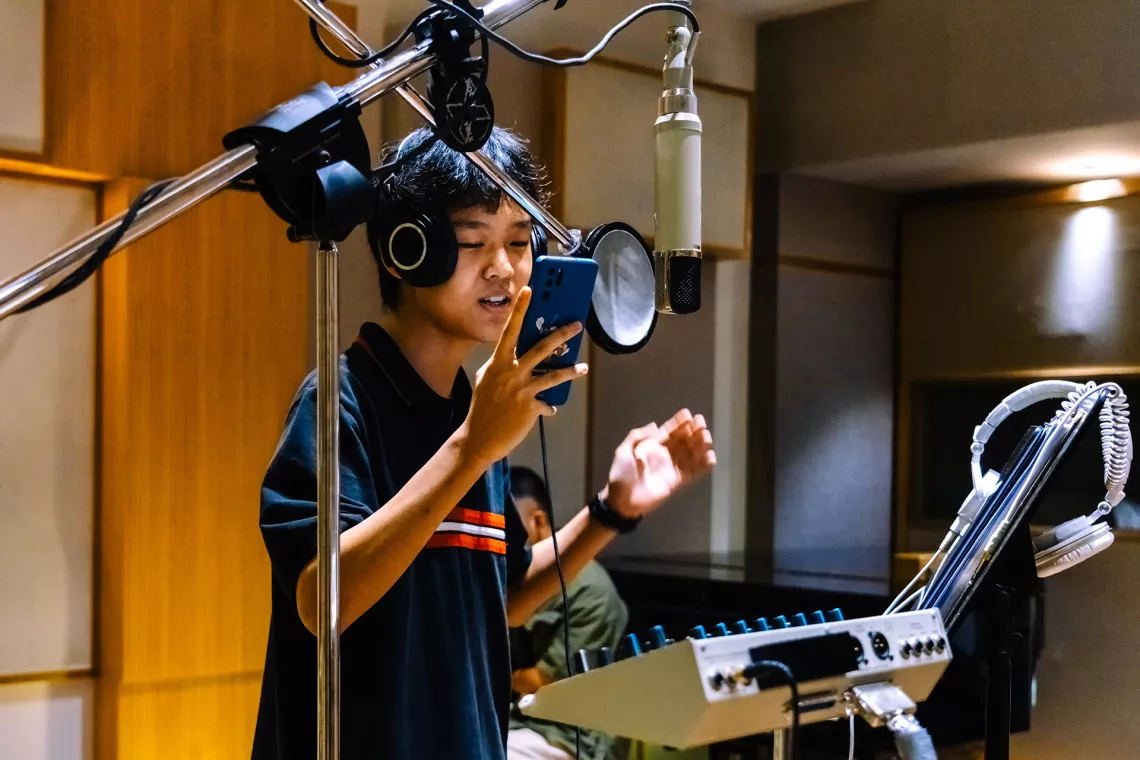
Each artist told us what mental health support they think adolescents need. Peer support is the most important, according to Li Simo.
“As students, we spend most of our time at school. And the closest ones at school are our classmates. If a classmate says something that makes you uncomfortable, then it will have a big negative impact, whereas if a classmate lends a helping hand when you need support, even if it’s just a few words expressing care, it would be a great boost.”
“For example, a classmate of mine failed a PE exam, which might reduce his chances of entering his dream high school, so he was very upset. In those days, I was there for him and kept telling him there are other options if he cannot enroll in his preferred school. I was merely there to keep him company. I didn’t say anything particularly special, but he was visibly relieved.”
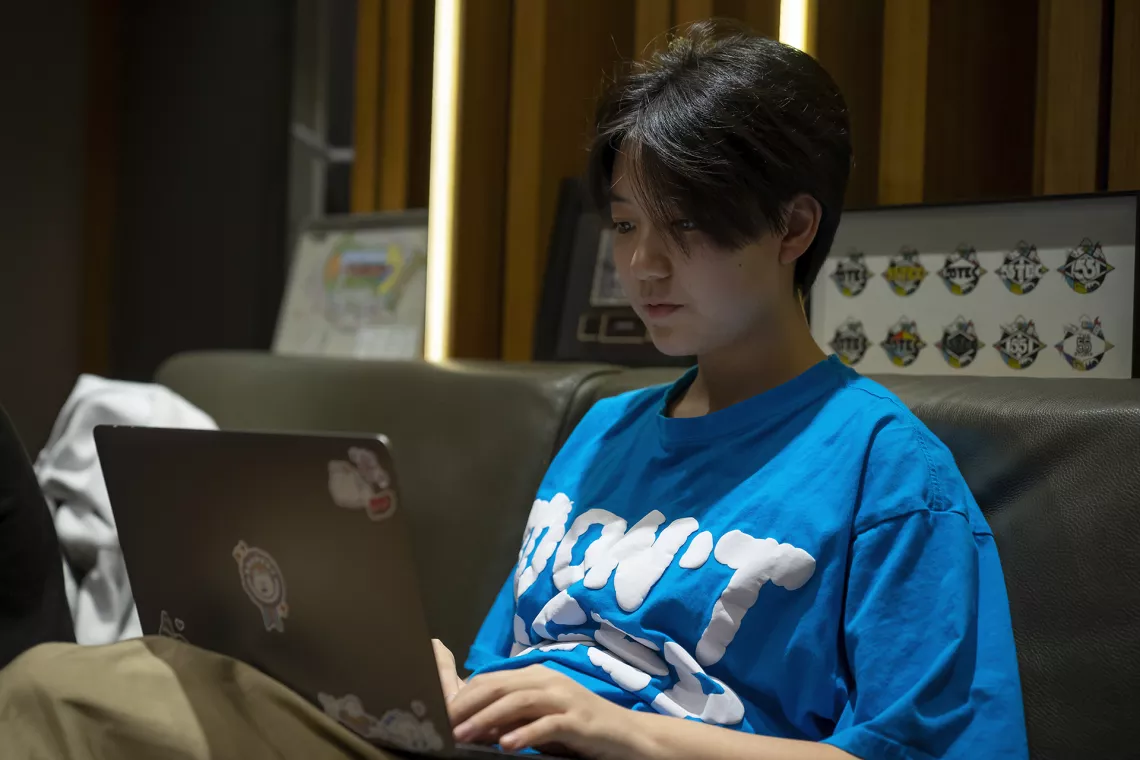
For Perry Kan, support from adult figures like parents and teachers as well as schools is the most important.
“Before adulthood, especially when we are younger, we are defined mostly by adults. We learn from them who we are, whether we are successful or not, and if we should be proud of ourselves or if we need to reflect. Therefore, when we have setbacks or struggles, we definitely need our parents and teachers to provide us with affirmative recognition and support.”
“Meanwhile, we also need support from schools. There aren’t enough counselors in schools. When you want to voice mental health problems, you cannot find an effective channel. Help from schools, such as through school counsellors, will make children feel they are supported.”
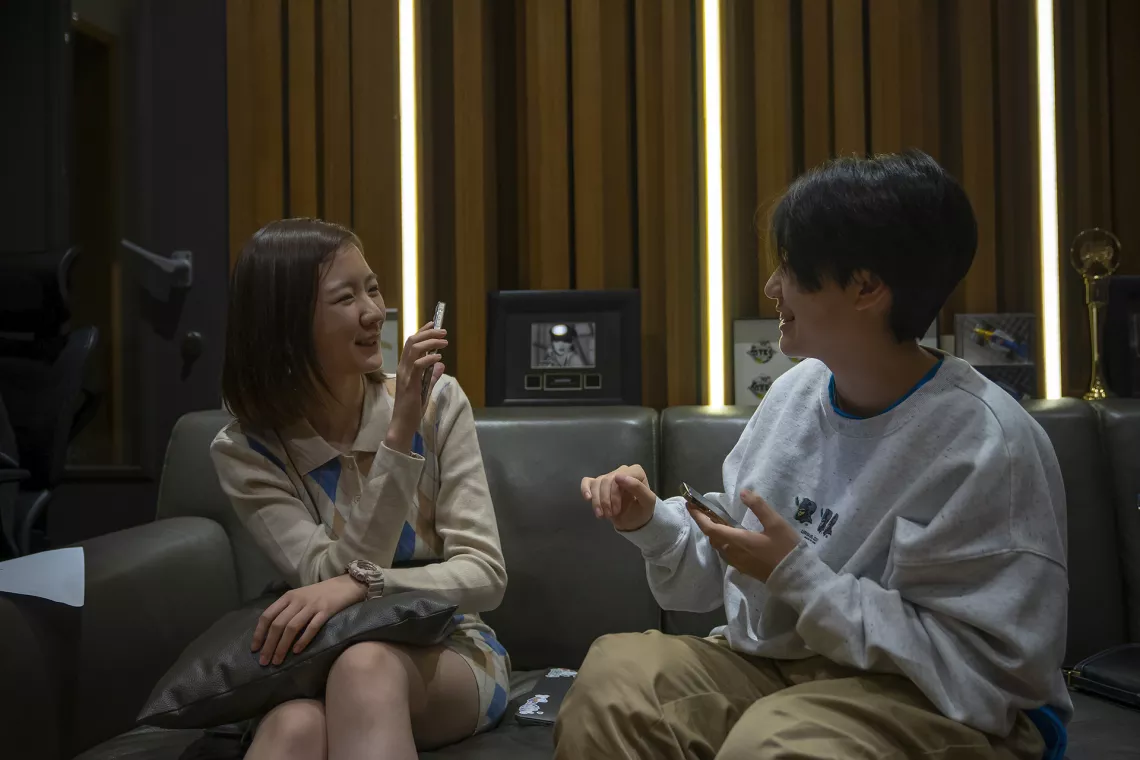
“I hope there are more professional institutions and a workforce to provide interventions, including promoting mental health counselling and offering timely support to those who need it,” says Yu Xinwei.
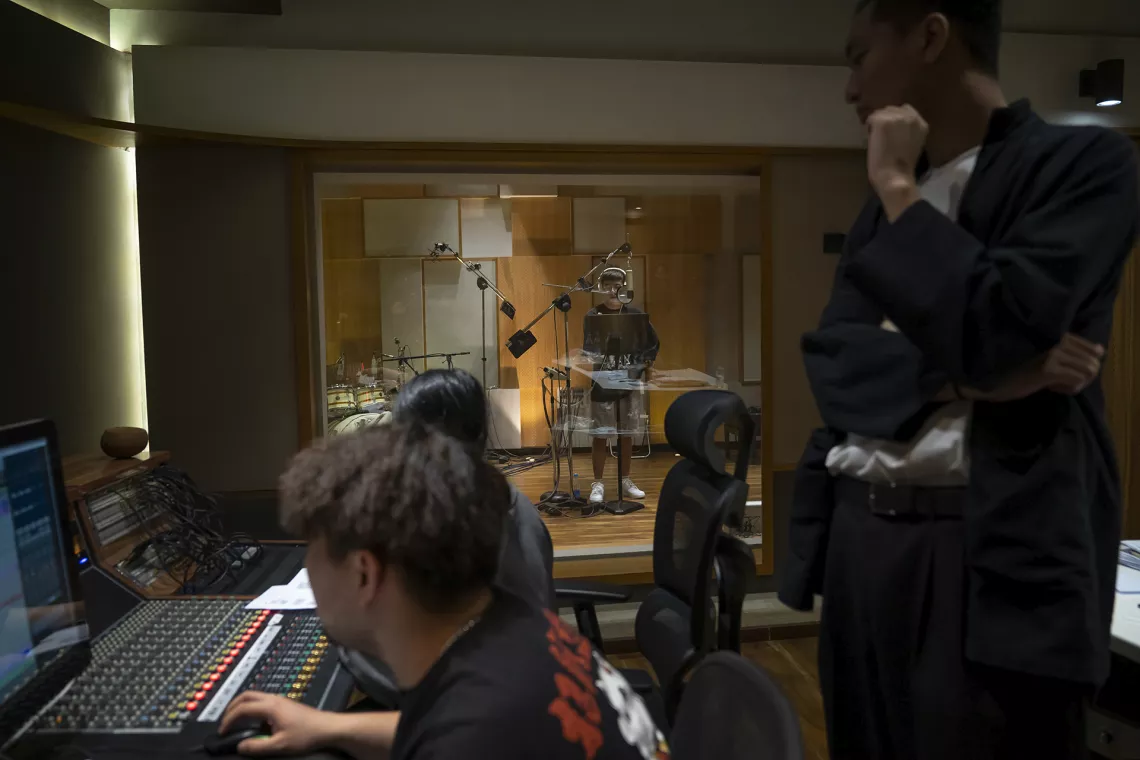
Wang Zelong believes that reducing stigma would help address the issue of mental health.
“Mental health shouldn’t be a taboo. I think society needs to tell young people that they should face it with courage, and to not worry that they will be judged, laughed at or treated unfairly because of mental health problems. We also need to build a social norm that mental health shouldn’t be overlooked.”
